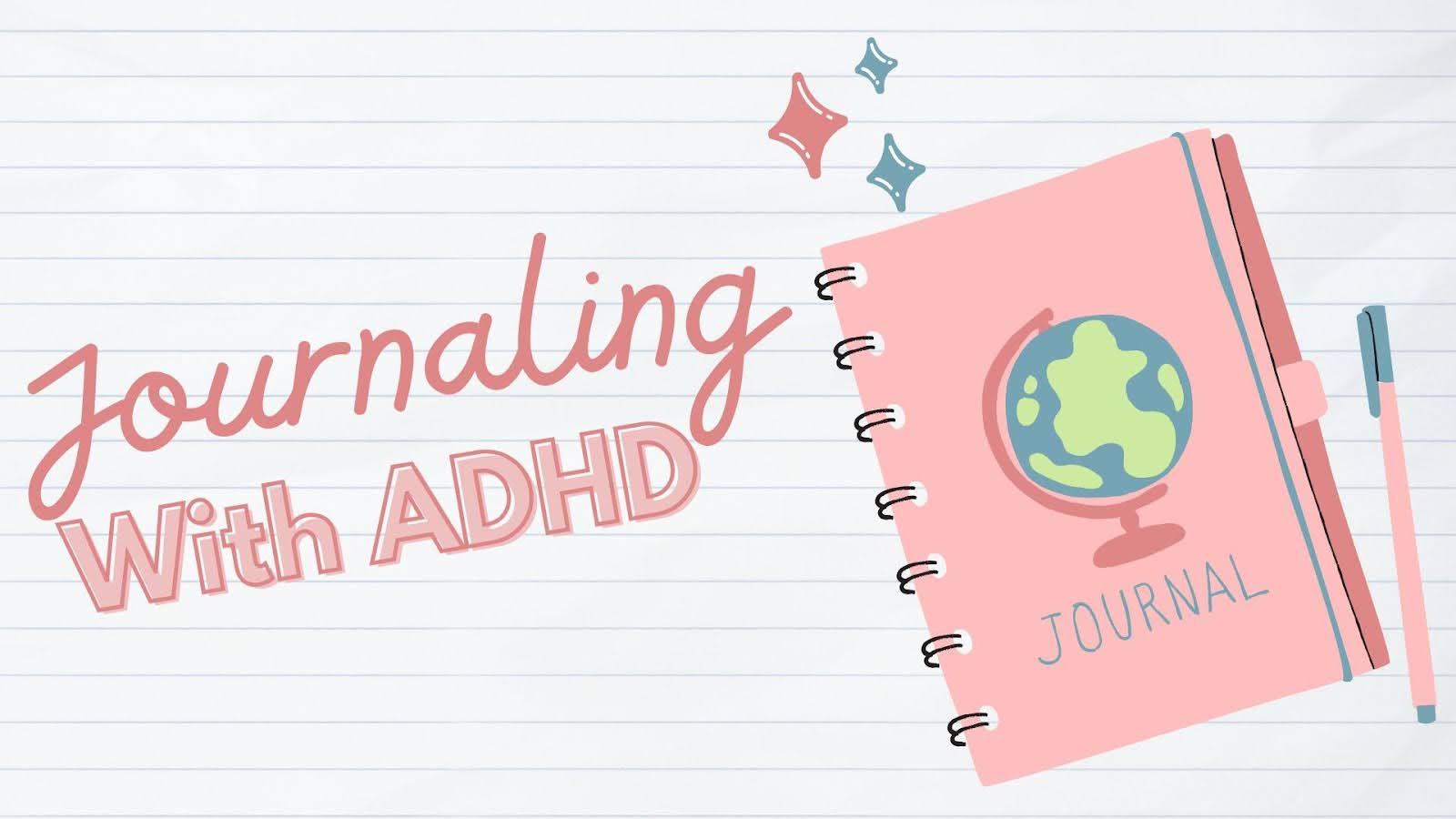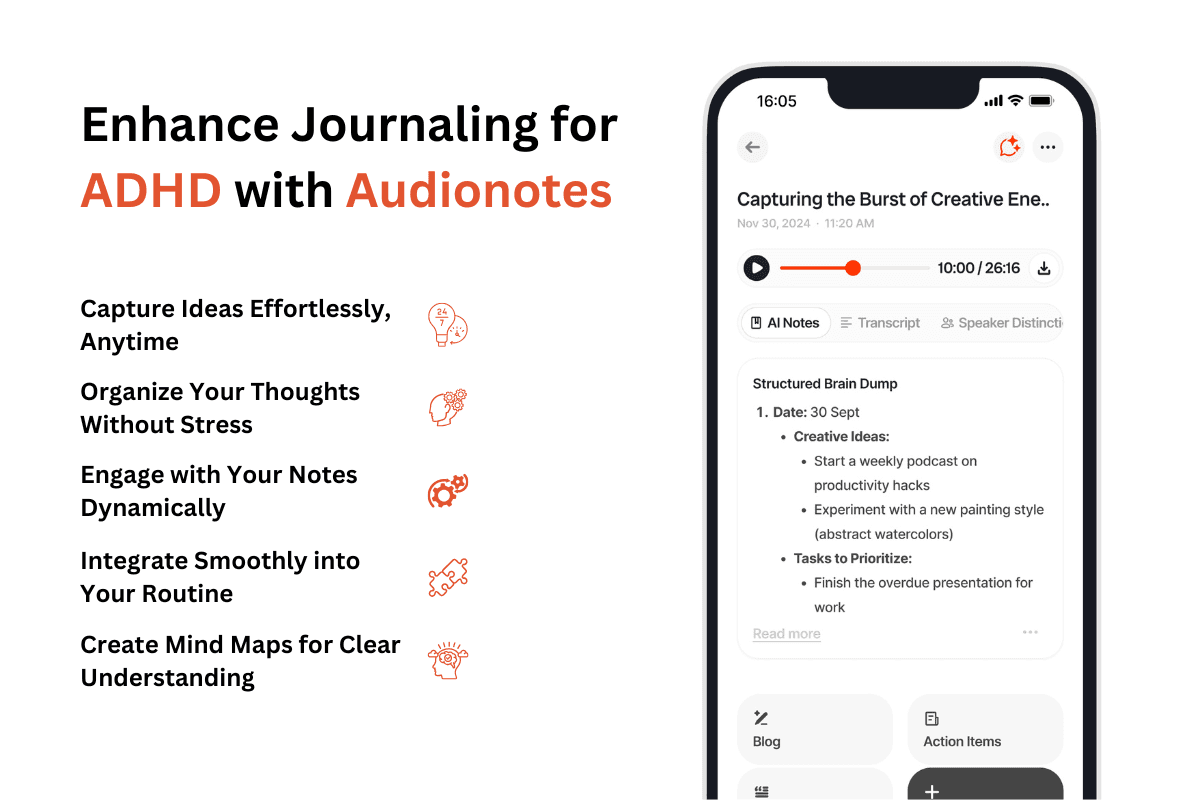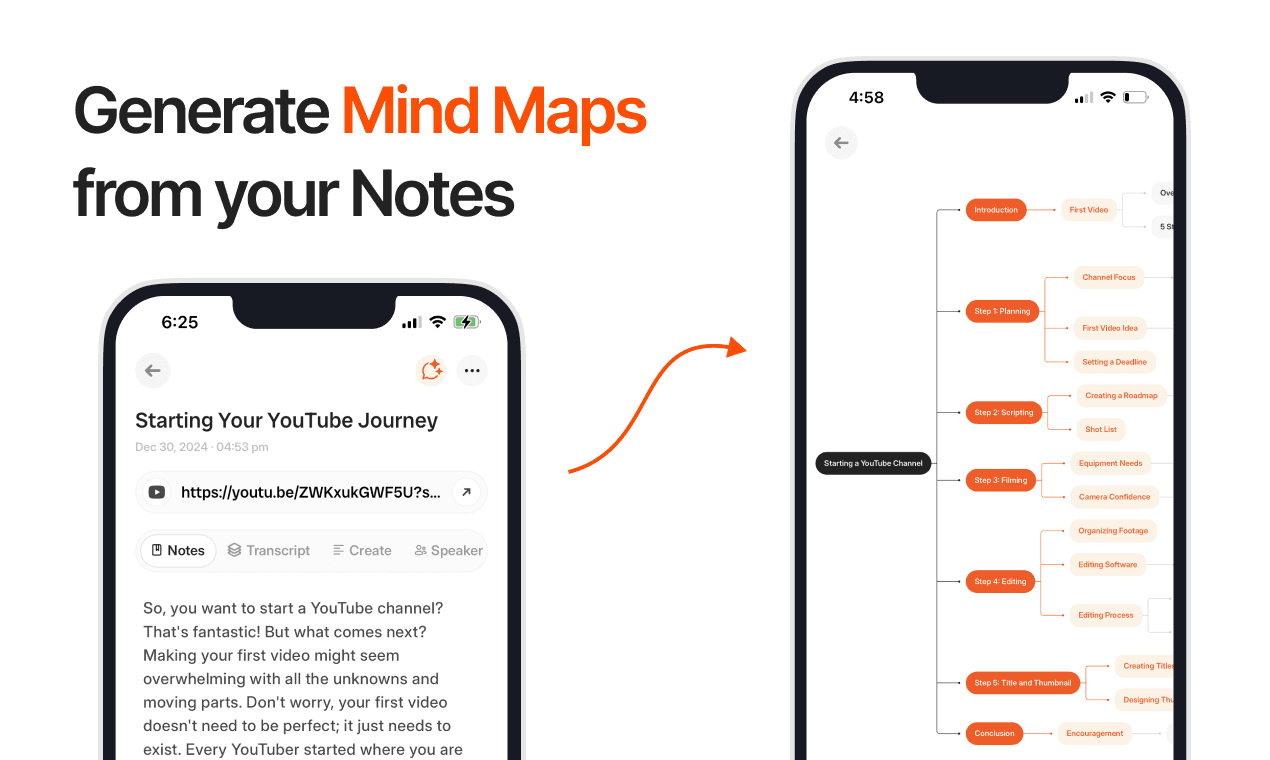Feb 5, 2025

Living with ADHD can feel like a constant battle against distractions, disorganization, and emotional overwhelm. Whether it's struggling to stay focused at work, losing track of time, or dealing with racing thoughts, ADHD can make even the simplest tasks seem challenging. If you’re looking for a practical, calming tool to help manage these challenges, journaling might be just what you need.
Journaling is more than just putting pen to paper; it’s a way to organize your thoughts, process emotions, and track your progress. For people with ADHD, journaling offers a structured approach to managing focus, stress, and memory while providing emotional release and self-reflection.
In this blog, we'll explore the benefits of journaling for individuals with ADHD and share practical tips to help you build a journaling habit that works for you.
Key Benefits of Journaling for ADHD
Journaling offers many advantages for managing the symptoms of ADHD, from increasing focus to easing emotional stress. Here are some of the key benefits:
1. Enhanced Focus and Mental Clarity
Writing helps clear the mind of distractions by externalizing thoughts. When we write, we organize our scattered thoughts and ideas, which helps us stay on task and clear-headed. Journaling makes it easier to focus on one task at a time rather than becoming overwhelmed by the noise of our thoughts.
2. Managing Anxiety and Reducing Stress
Journaling provides a safe space to express overwhelming emotions. Often, when you have ADHD, racing thoughts and emotional intensity can create high levels of anxiety and stress. Putting your emotions on paper gives you a sense of emotional relief and clarity.
3. Improved Emotional Regulation and Self-Compassion
Writing allows for reflection on emotional responses, which helps improve control over impulsivity. Journaling provides the opportunity to examine emotional reactions in a way that brings self-awareness. It also promotes self-compassion by acknowledging struggles without judgment, helping you view yourself with greater understanding and empathy.
4. Boosting Creativity and Problem-Solving Skills
Journaling stimulates creative thinking by encouraging both analytical and intuitive thought. When faced with challenges, journaling can provide a space to brainstorm solutions. By writing down ideas, we engage different parts of the brain that promote creative problem-solving, helping us discover new ways to tackle issues.
5. Memory Enhancement and Task Management
With ADHD, it’s easy to forget important details, and journaling can provide a clear, organized way to manage daily tasks. Journaling serves as an external memory aid, helping to track tasks, deadlines, and appointments. By writing down goals and activities, you reinforce memory, reduce stress, and improve time management.
6. Support for Personal Growth and Self-Reflection
Journaling offers insights into behavior patterns, helping individuals better understand themselves. Reflecting on past experiences allows for personal growth, whether you're celebrating achievements or learning from setbacks. Journaling helps track progress, encouraging self-reflection and offering valuable lessons for future growth.
With these benefits in mind, let's now look at the common challenges that might arise when journaling with ADHD and how to overcome them.
Challenges of Journaling with ADHD
While journaling can be incredibly beneficial for managing ADHD, some challenges may arise along the way. Recognizing these obstacles and finding ways to overcome them can make journaling a more consistent and rewarding practice:
1. Executive Function Deficits Impacting Journaling
ADHD often leads to difficulty with starting or completing tasks, including journaling. Getting started can feel like a major hurdle, and once you begin, following through on your writing can be just as challenging. Interruptions, distractions, or shifting priorities may cause incomplete entries, leaving you feeling unproductive.
2. Consistency and Routine Obstacles
Establishing a journaling habit can be tough with ADHD, as sticking to routines may feel difficult. Forgetting to journal or skipping days is common, especially when routines feel restrictive or monotonous. External distractions and fluctuating motivation add to the difficulty.
3. Avoiding Perfectionism and Embracing Authenticity
People with ADHD may feel the pressure to write perfectly, leading to frustration and self-doubt. The fear of not writing “good enough” entries can lead to avoidance or frustration. Self-doubt may arise when entries don’t meet self-imposed standards, turning what should be a reflective activity into a source of stress or dissatisfaction over time.
Let's take a look at some practical tips to help you create an effective journaling practice.
Tips for Effective Journaling with ADHD
Building a journaling habit with ADHD requires a bit of creativity and flexibility. To help you get started, here are some practical tips:
Start with Prompts to Guide Writing: Prompts are a great way to help you focus when starting your journal entry. Simple questions like “What’s on my mind today?” or “What went well this week?” can help guide your thoughts and make journaling feel less challenging.
Keep Entries Simple and Concise: Keeping journal entries short and concise helps reduce overwhelming feelings. You don’t need to write long paragraphs every time. Focus on writing a few short lines or bullet points.
Incorporate Visual Elements Like Drawings: Adding creative elements to your journal can make it more engaging. Whether it’s doodling, sketching, or color-coding, visual elements can help improve focus and spark creativity.
Try Different Journaling Formats and Media: Journaling doesn’t have to look the same every day. Experiment with different formats, such as digital journaling apps, voice recordings, or video diaries, to find what works best for you.
Set Reminders to Establish a Routine: To build a journaling habit, set daily reminders to prompt you to write. Using alarms or notifications can serve as gentle nudges throughout the day. Establishing a consistent time to journal, even if it’s just for a few minutes, will help you create a routine that’s easier to follow.
Let Go of Perfection: Embrace imperfection by reminding yourself that journaling is for you, not an audience. Use tools like messy handwriting or unstructured bullet points to reduce the pressure. Focus on expressing yourself authentically rather than creating a flawless narrative.
Consistency takes time, so celebrate even small efforts. If you journaled once this week, that’s progress worth acknowledging.
Having a solid journaling practice is just one part of managing ADHD. Now, let's explore how you can create a journal routine.
Creating a Journal Routine
To make journaling a consistent practice, it’s essential to integrate it into your daily life. Here’s how to establish a journal routine that works for you:
Set Realistic Goals for Journaling Frequency: Start small. Journaling for just 5-10 minutes a day can make a big difference. As journaling becomes more comfortable, you can gradually increase the time you spend writing. Setting realistic goals helps prevent feeling overwhelmed and makes journaling more achievable.
Find the Right Time of Day to Journal: Choose a quiet moment during your day to journal. Whether in the morning, during lunch breaks, or right before bed, find a time when distractions are minimal. Establishing a time when you can focus helps create a consistent journaling habit.
Integrate Journaling into Existing Daily Habits: Pair journaling with other daily habits. For example, you could journal with your morning coffee or before bed as part of your wind-down routine. Connecting journaling to an existing habit makes it easier to incorporate into your day.
Let’s move on to a few journal prompts and ideas to get your creativity flowing.
Journal Prompts and Ideas
To make journaling even easier, consider using specific prompts and ideas to guide your entries. Here are a few suggestions to help you get started:
Daily Wins and Challenges: Reflect on your accomplishments and struggles related to ADHD. This helps you gain perspective on your day and celebrate small wins. Recognizing challenges helps you stay focused on areas for growth.
Emotional Triggers: Write about moments that triggered strong emotions today. Understanding what causes intense feelings allows you to address them more effectively in the future.
Goals and Progress Tracking: Break down big goals into smaller, more manageable tasks. Writing about progress helps keep you organized and motivated, encouraging continued effort toward long-term goals.
Emotional Reflections and Venting: Use your journal as a safe space to express your emotions without judgment. Write about whatever’s on your mind—whether frustration, sadness, or joy. This helps you process feelings and release emotional tension, offering clarity and emotional relief.
Self-Forgiveness: If you’re feeling guilty or upset with yourself, write about it and try to practice self-forgiveness. Journaling about your mistakes can help you let go and move forward with more compassion.
As you begin using these prompts, you’ll notice how journaling not only helps manage ADHD but also creates a deeper connection with yourself.
Enhance Journaling for ADHD with Audionotes

While journaling can be an incredibly helpful tool for managing ADHD, the process itself can sometimes feel overwhelming. For individuals with ADHD, the pressure of having to write everything down or keep detailed, structured notes may add unnecessary stress. This is where Audionotes comes in as a game-changing tool.
Audionotes is a powerful app that turns voice recordings, images, and text into clear, organized notes. Using AI, the app helps you capture your thoughts on the go without needing detailed writing or worrying about manually organizing your ideas.
Here’s how Audionotes can specifically help people with ADHD:
1. Capture Ideas Effortlessly, Anytime
Audionotes lets you quickly record your thoughts using voice, text, or images, giving you the freedom to express ideas as they come. Whether you're in the middle of a busy day or feeling inspired, this flexibility eliminates the frustration of waiting for the "perfect moment" to journal.
2. Organize Your Thoughts Without Stress
Scattered thoughts are common with ADHD, but Audionotes turns chaos into clarity. It organizes your inputs into structured folders and categories, making it easy to revisit and make sense of your ideas. This helps reduce overwhelm and keeps you on track with tasks and reflections.
3. Engage with Your Notes Dynamically
Audionotes goes beyond static entries, allowing you to interact with your notes. Explore specific sections, ask follow-up questions, and uncover new insights with its interactive features. This functionality promotes deeper understanding and reflection, empowering you to process your thoughts better.
4. Integrate Smoothly into Your Routine
Audionotes connects with tools like Notion and Zapier to fit seamlessly into your daily workflow. This integration helps you manage notes across platforms, ensuring your journaling and productivity systems work hand-in-hand for better organization and efficiency.
5. Create Mind Maps for Clear Understanding

Audionotes allows you to generate mind maps from your notes, helping you visualize connections between ideas. This is especially beneficial for individuals with ADHD, as it simplifies complex concepts and makes information easier to process and recall.
By making the process of capturing and organizing thoughts as easy as speaking, Audionotes empowers you to stay on top of your journaling habit, no matter how busy or distracted life may get.
Conclusion
Living with ADHD can often feel like navigating a constant storm of distractions and scattered thoughts. While journaling is a fantastic tool to help bring order to this mental chaos, the traditional writing process can be challenging.
But what if there was a way to capture your thoughts effortlessly without the added pressure of perfecting every entry? Enter Audionotes — the game-changing app designed to help you transform your spoken words into clear, organized notes with the power of AI.
The Audionotes app simplifies the journaling process, allowing you to speak your thoughts aloud rather than struggle with writing them down. Whether capturing moments of inspiration, processing emotions, or reflecting on your day, Audionotes helps organize your ideas seamlessly, turning your cluttered thoughts into structured, actionable notes.
Ready to turn your scattered thoughts into meaningful, organized reflections? Start capturing clarity on the go with Audionotes- available on iOS and Android. Start for Free Today!